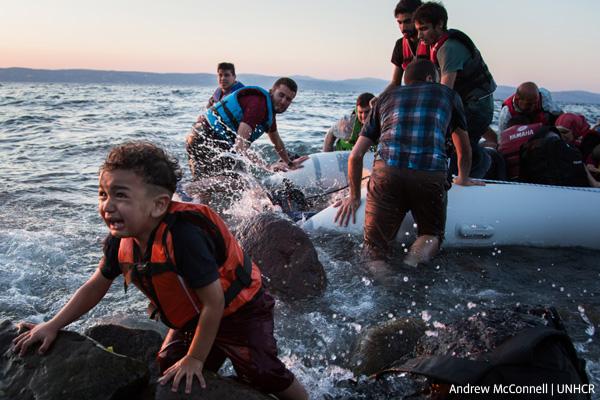News: talking about refugees with your children
Talking about refugees to children can be difficult. Public opinion was strongly shaken by the publication of the photo of little Alyan, 3, stranded on a beach. For several weeks, the television news broadcast reports where thousands of people, many of them families, arrive by makeshift boat on the coasts of European countries. VSThe images are looped on the news channels. Distraught, parents wonder what to say to their child.
Tell the children the truth
“Children must be told the truth, using simple words to be understood”, explains François Dufour, editor-in-chief of Le Petit Quotidien. For him, the role of a media is to “make the public aware of the world as it is, even to the youngest”. He is in favor of showing children the images of refugees fleeing their country, especially those where we see families behind barbed wire. It’s a way of making them really understand what’s going on. The whole point is to explain, to put simple words on these shocking images. ” The reality is ultra shocking. It must shock young and old. The idea is not to show in order to shock but to shock in order to show ”. François Dufour specifies that the child’s age must of course be taken into account. For example, “the Petit Quotidien, dedicated to toddlers from 6 to 10 years old, did not publish the unbearable image of little Aylan, stranded on the beach. On the other hand, this one will pass in the pages “World” of the Daily, the newspaper of the 10-14 years, with a warning to the parents in One “. He recommends using the special issues that will appear at the end of September on refugees.
What words to use?
For sociologist Michel Fize, “it is important to use the right words when parents explain the subject of migrants to their children”. The reality is clear: they are political refugees, they are fleeing their country at war, their life there is threatened. The specialist recalls that “it is also good to remember the law. France is a land of welcome where there is a fundamental right, the right of asylum for political refugees. It is an obligation of national and European solidarity. Laws also allow quotas to be set ”. In France, it is planned to accommodate nearly 24 people over two years. Parents can also explain that at the local level, associations will help these refugee families. In a press release of Friday September 000, 11, the Education League specifies that the first refugees arrived in Paris on Thursday September 2015 at night. The National Education League and the Paris Education League will set up an emergency solidarity network via holiday centers, medico-social accommodation, etc. The animators, trainers and activists will thus be able to help children and young people through cultural, sports or leisure activities, or even workshops to help with schooling. For Michel Fize, from a societal point of view, the arrival of these families will undoubtedly promote multiculturalism. Children will inevitably meet children of “refugees” at school. For the youngest, they will first of all perceive the mutual aid that exists between French adults and newcomers.










